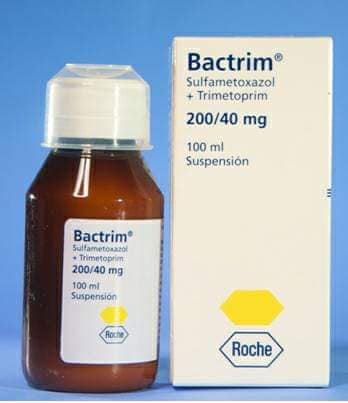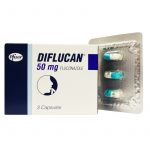How Long Does Bactrim Stay In Your System?

Bactrim is a combination of trimethoprim and sulfamethoxazole and is in a class of medications called sulfonamides. It works by stopping the growth of bacteria. Antibiotics will not kill viruses that can cause colds, flu, or other viral infections.
Bactrim is used to treat certain bacterial infections, such as pneumonia (a lung infection), bronchitis (infection of the tubes leading to the lungs), and infections of the urinary tract, ears, and intestines. It also is used to treat ‘travelers’ diarrhea.

How should Bactrim be used?
Bactrim comes as a tablet and a suspension (liquid) to take by mouth. It usually is taken two times a day but may be taken up to four times a day when used to treat certain severe lung infections. Follow the directions on your prescription label carefully, and ask your doctor or pharmacist to explain any part you do not understand. Take Bactrim exactly as directed. Do not take more or less of it or take it more often than prescribed by your doctor.
You should begin to feel better during the first few days of treatment with Bactrim. If your symptoms do not improve or if they get worse, call your doctor.
Shake the liquid well before each use to mix the medication evenly.
Take Bactrim until you finish the prescription, even if you feel better. Do not stop taking Bactrim without talking to your doctor. If you stop taking Bactrim too soon or skip doses, your infection may not be completely treated and the bacteria may become resistant to antibiotics.
How long does Bactrim stay in your system?
There are several factors that come into play when estimating how long Bactrim will stay in your system because every patient has physiology unique to them. Here are some major factors you should consider when trying to understand how long Bactrim will stay in your body:
• Age: Typically, the younger you are, the more efficient your body functions are. The more efficient your body functions, the faster Bactrim will be removed from your system.
• Amount: The higher the dose of Bactrim you have been taking, the longer Bactrim will take to be removed from your system.
• Genetics: Genes predispose people to different metabolic functions, which is a key factor in how your body processes medications like Bactrim. For this reason, your genetic makeup comes into play when estimating how long Bactrim will remain in your system.
• Kidney and liver functions: The liver and kidneys eliminate everything you ingest, and Bactrim is no exception. If your liver or kidneys are damaged, it will most likely take longer for your body to remove the Bactrim from your system.
• Metabolism: Your metabolism determines how quickly you process foods, liquids, and drugs such as Bactrim. If your metabolism is slow, it will take longer for your body to process and eliminate Bactrim from its system than someone with a fast metabolism.
• Usage frequency: The longer you have been taking Bactrim, the longer it will remain in your system. For example, it will take longer for someone who has taken Bactrim for several years to remove Bactrim from the body than someone who has only been taking Bactrim for a few months.
According to studies, the mean serum half-lives of sulfamethoxazole and trimethoprim the active ingredients in Bactrim are 10 and 8 to 10 hours, respectively. However, patients with severely impaired renal function exhibit an increase in the half-lives of both components as stated above.
It usually takes around 5 to 6 half-lives for a drug to be completely eliminated from your system, you can expect to be free of Bactrim after about three days (72 hours) after your last use.
What happens if I miss a dose?
Use the medicine as soon as you can, but skip the missed dose if it is almost time for your next dose. Do not use two doses at one time.
What happens if I overdose?
Seek emergency medical attention or call the Poison Help line at 1-800-222-1222.
Overdose symptoms may include loss of appetite, vomiting, fever, blood in your urine, yellowing of your skin or eyes, confusion, or loss of consciousness.
What should I avoid while using Bactrim?
Bactrim could make you sunburn more easily. Avoid sunlight or tanning beds. Wear protective clothing and use sunscreen (SPF 30 or higher) when you are outdoors.
Bactrim side effects
Get emergency medical help if you have signs of an allergic reaction to Bactrim (hives, cough, chest pain, shortness of breath, swelling in your face or throat) or a severe skin reaction (fever, sore throat, burning eyes, skin pain, red or purple skin rash with blistering and peeling).
Seek medical treatment if you have a serious drug reaction that can affect many parts of your body. Symptoms may include skin rash, fever, swollen glands, joint pain, muscle aches, severe weakness, pale skin, unusual bruising, or yellowing of your skin or eyes.
Call your doctor at once if you have:
• severe stomach pain, diarrhea that is watery or bloody (even if it occurs months after your last dose);
• any skin rash, no matter how mild;
• yellowing of your skin or eyes;
• a seizure;
• new or unusual joint pain;
• increased or decreased urination;
• swelling, bruising, or irritation around the IV needle;
• increased thirst, dry mouth, fruity breath odor;
• new or worsening cough, fever, trouble breathing;
• high blood potassium – nausea, weakness, tingly feeling, chest pain, irregular heartbeats, loss of movement;
• low blood sodium – headache, confusion, problems with thinking or memory, weakness, feeling unsteady; or
• low blood cell counts – fever, chills, mouth sores, skin sores, easy bruising, unusual bleeding, pale skin, cold hands, and feet, feeling light-headed or short of breath.
Common Bactrim side effects may include:
• nausea, vomiting, loss of appetite; or
• skin rash.
This is not a complete list of side effects and others may occur. Call your doctor for medical advice about side effects. You may report side effects to FDA at 1-800-FDA-1088.





